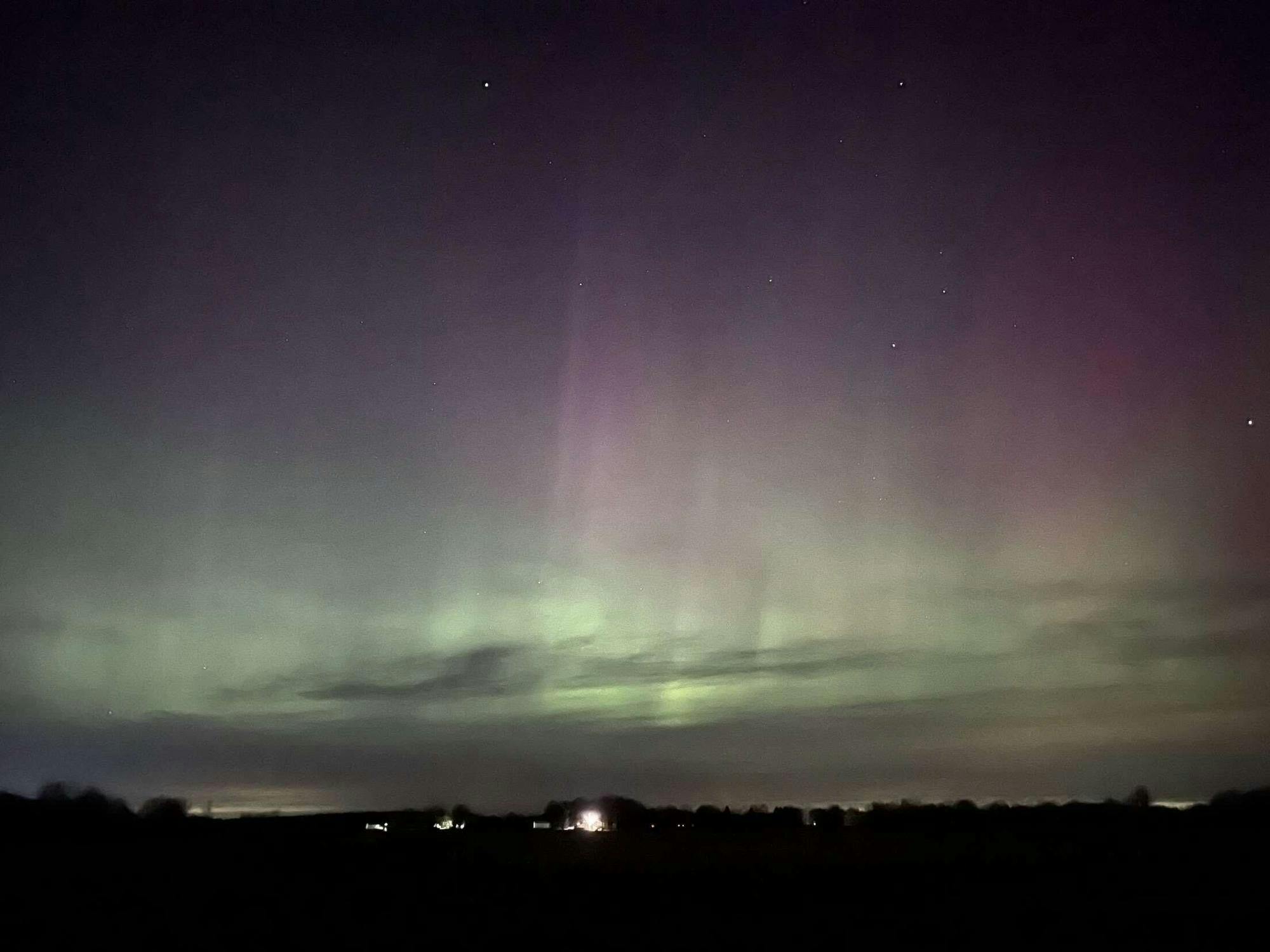In late April, the northern lights graced East Lansing with their stunning display. Last week, two more geomagnetic storms made the lights visible across many of the "Lower 48" states, including Michigan, Illinois, New York and Idaho.
The northern lights, also called aurora borealis, are a natural light show known their mystical colors and elusiveness.
Caused by collisions between gaseous particles in the Earth's atmosphere with charged particles from the sun's, the lights are typically seen in far north regions along the Arctic Circle.
According to Michigan State University astronomy professor Horace Smith, the aurora may become more frequent in Michigan over the next few years.
“Northern lights are intimately connected with the activity of the sun," Smith said. "Solar activity goes up and down in a roughly 11-year cycle. When activity on the sun is high, there are greater chances of phenomena (occuring) … either solar flares or other things that toss subatomic particles ... into space."
Smith said the sun is in the upswing of its current cycle. Because of this, he said, solar activity is stronger than usual and increases the chances of visibility in the U.S.
“Some (flares) are pretty weak and the activity doesn’t come down to us very often,” Smith said. “Some are stronger and give rise to northern lights here in (East Lansing) more frequently."
Smith noted the uncertainty of solar cycles and aurora predicitions. He said organizations such as the National Oceanic and Atmospheric Administration, or NOAA, provide forecasts and alerts for people to keep and eye on activity.
“They can be green, that’s usually the strongest," Smith said. "They can be red, they can be pink, or they can be so weak to the eye, they just appear as white."
During the geomagnetic storm this past April, some MSU students were lucky enough to catch a glimpse of the vibrant lights.
Psycholgy senior Jane Carter was going through her night routine and scrolling through Snapchat when she saw a post of the aurora from someone in the Lansing area. At around 1 a.m., Carter and her boyfriend drove around to try and catch the display.
"It was almost breathtaking to see because I've always wanted to see the northern lights," Carter said. "And I know they're really only visible when you're like up north, in the Upper Peninsula."
Similarly, animal science junior Bridget Henderson said she and her friends decide to take a break from studying to watch the lights. She said the beauty of the lights made her choke up.
"I was just in awe of the whole thing," Henderson said. "We stopped two different times ... once closer to campus and then (again) we ended up driving a little further. (I) got out of my car, turned all the lights off and we were just ... looking up and it was the coolest moment of my life."
To maximize the chances of seeing the aurora's next appearance, Smith advised going out on a clear night, when the moon is less bright. Though the best chances of seeing the lights are in the spring and fall, he said, they may be visible be any month of the year.
“It's not a perfect prediction but (the northern lights) are beautiful to watch and pretty easy to photograph too, if you have a camera that will ... work at night," Smith said.
Support student media!
Please consider donating to The State News and help fund the future of journalism.
Discussion
Share and discuss “Northern lights spotted in East Lansing, may be visible throughout the year” on social media.







